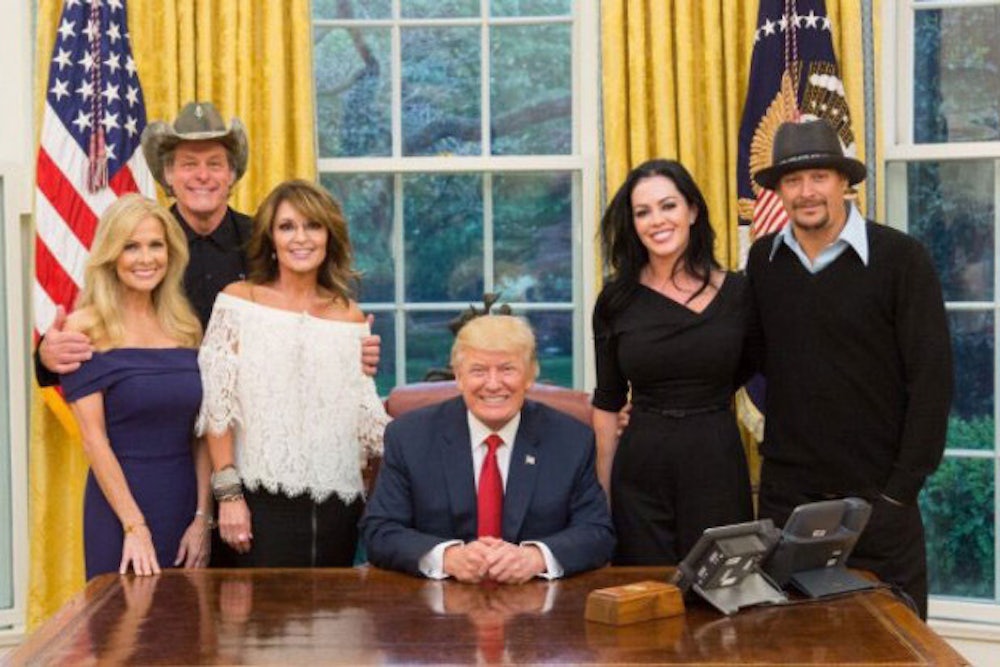Listening to White House Press Secretary Sean Spicer struggle and fail on Wednesday to resolve the insoluble contradiction between President Donald Trump’s purported outrage at Griffin (who was denounced, and has apologized, for a video in which she holds a mock-up of a severed head resembling Trump) and his decision last month to invite Ted Nugent, the racist performer who levied violent threats against President Barack Obama, to the White House, I was struck by how this contrived controversy might actually be put to some constructive use.
Kathy Griffin should be ashamed of herself. My children, especially my 11 year old son, Barron, are having a hard time with this. Sick!
— Donald J. Trump (@realDonaldTrump) May 31, 2017
Unlike Griffin, Trump is the president. Before he was the president, he built a massive following for himself on the right by commandeering the racist conspiracy theory that Obama was born in Kenya. He did not think twice about Obama’s young children then. Rather than finding himself driven out of conservative politics, Trump’s birther movement formed the basis of his takeover of the Republican Party. As the GOP standard bearer, he encouraged his supporters to commit violence, and as president, he (per Spicer’s evasions) elevated Nugent’s profile with an Oval Office visit. Neither man thought twice about Obama’s young children then.
Griffin, by contrast, went from being a non-entity in liberal politics to being persona non grata in liberal politics, in an instant.
Griffin toxicity continues: Cortez Masto to donate $1000 received from her last cycle to charity https://t.co/vb5QYDzD94
— Burgess Everett (@burgessev) May 31, 2017
My point is not to distract from any questions about Griffin’s conduct, all of which have been settled anyhow. It is about using the episode and the context around it to pinpoint where basic decency in public discourse resides, and where it does not. It is about encouraging political referees to think critically before using the Griffin episode as a crutch for the easy conceit that both sides have envenomed partisan politics.
